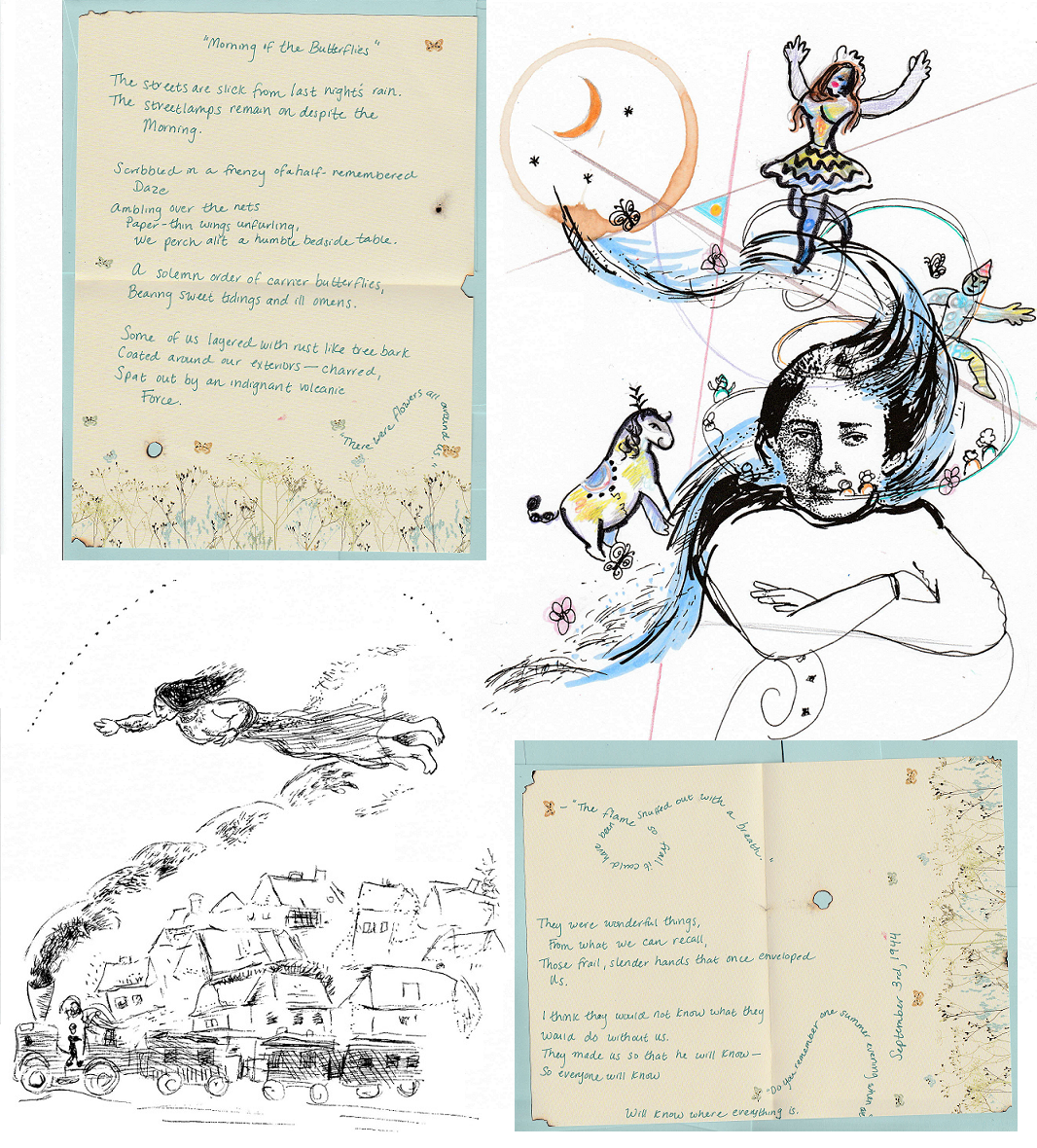December 31, 2025 (edited on January 8, 2026)
In memoriam of Renee Good
"On Learning To Dissect Fetal Pigs”
https://poets.org/2020-on-learning-to-dissect-fetal-pigs
Resource to support Minnesota’s Somali immigrants: https://iimn.org/stand-with-minnesotas-somali-community/
September 1, 2025
June 5, 2025
https://www.justgiving.com/page/savegaza
“that the bible and qur’an and bhagavad gita are sliding long hairs behind my ear like mom used to & exhaling from their mouths “make room for wonder”—”
May 11, 2025
Florence - A Tableau
The peninsula writhes. Pope Celestine V — the last of the namesake — unable to meet the demands of his station and wistful for the days of more parochial responsibilities, has resigned after only five months of his being elected, serving long enough to enact the laws validating his own abdication and the abdications of popes to follow. He squats contentedly feeding crumbs of stale rye bread to a congregation of mice in a secluded jail cell where his successor, Pope Boniface VIII, has placed him. His Papacy is one of corruption and meddling of temporal matters as the tenuous network of pacts and dynastic marriages convulses the cogs of the World Powers; the Ghibellines nurse their wounds after years of dutiful terror in service to its land-hungry ghost haunting a willful people who do not, nor will ever, wish to be its subjects. In Florence, a maid to an influential family throws a pot of scalding water from the top floor onto the pavement as another scrubs away the blood of a fallen White Guelph that will soon run into the Arno.
The physician glances up, distracted by the trickle and patter on the window, initially mistaking it for rain. He resumes wiping the gummy traces of licorice root from the mortar and pestle while humming a catchy refrain of a troubador’s ballad. In front on the sill of the palazzo are the remnants of an abscessed molar residing within a green-tinted vial, its glass momentarily altered to a luminous russet gold through the alchemy of the evening sun.
The extraction complete, his apprentices walk awkwardly about the drawing room, admiring its furnishing with hands linked behind them and exchanging notes with hushed tones. The noblewoman, her mind and jaw wracked with a searing pain, swivels herself off the settee-turned-operating chair, her trembling hands grasping like guide dogs upon desk, now mantle, bumping against side table, disturbing the vase of lilies, hobbling tingling legs toward the money box. Paying the physician, she gestures the party to the foyer. They genuflect in deference to her rank as they file out, the impressive double bronze doors groaning as they open inwards, revealing to its inhabitants the oxidized patina of their weather-battered halves. She motions to close them after their departure, but falters, instead lingers a while.
Among the buzz of idle chatter are rows of tempura portraits and intricate tapestries, pieces that appear as though standing at the base of something larger than its artists are prepared to fully bring into being. The scaffolding of what will become the Santa Maria del Fiore is a skeletal cat stretching its spine, overlaying a grid of angular shadows through which the crowd shimmers as a brilliant diamond-scaled wyvern. A bell tower has been installed with great fanfare, and a member of the clergy keenly practices its handling, yanks the rope with too much gusto, the velocity of the pulley launching him several feet into the air before falling back down onto his rear. On the corner is an acting troupe. They are dancing, costumed in comically ample codpieces and bosoms, weaving garlands made of twine around a maypole. The performance is met with looks of self-righteous disapproval and muffled laughter cupped between palms and mouths and concludes with the anxious yips of a wall-eyed pug. Through it all, a pauper cloaked in shreds of patched-together fabrics finds their target, the physician, who, after a moment’s hesitation, rifles reluctantly through his coffers to pay his alms, conscious of setting a good example. The figure bows, diverting their face to conceal the oozing sores around lips and eyes, and extends an aluminum sieve to catch the single ducato that produces a chime like the shallow rattle of a trodden tambourine as it lands. “Molte grazie, Signore.”
The noblewoman passes her tongue over the raw vacant gum, wincing regretfully, roves her eyes once more until resting them upon two men conversing under an arch some few strides away, dried laurel blooms about their feet, one of whom she is well acquainted, recognizes him best from only his profile. He is gesticulating wildly, agitated by a passionate grief and waving his arms toward the city as a lawyer defending a doomed client. The other offers a patronizing, world-weary sigh, gathering his odd maroon robes around him against a chill before spotting the noblewoman from atop her steps, breaking his speech midway; they are mindful of her scrutiny.
She turns to close the door, skimming her fingers over her forehead as though struck by a blacksmith’s iron. The swollen moon climbs; the younger poet is in a hurry in front, the elder with his shoulders slumped and the paranoid demeanor of a petty thief attempts to keep pace behind him to the peal of Sanctus bells.




